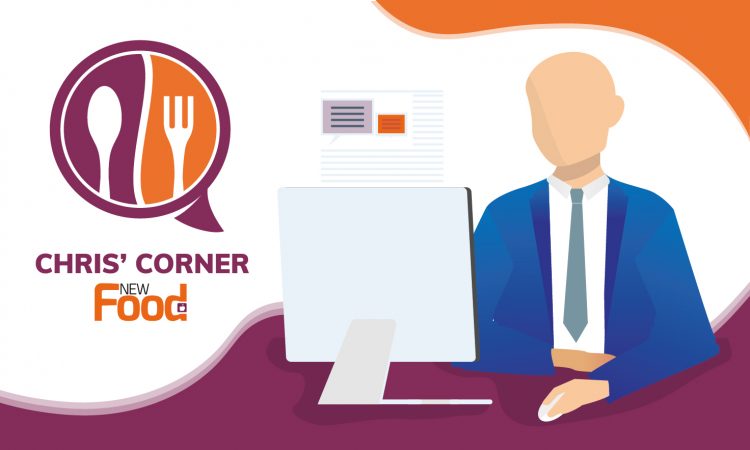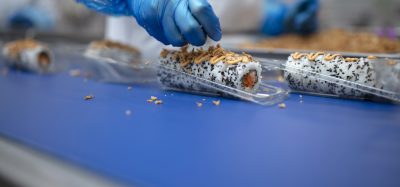An invitation for food fraud
- Like
- Digg
- Del
- Tumblr
- VKontakte
- Buffer
- Love This
- Odnoklassniki
- Meneame
- Blogger
- Amazon
- Yahoo Mail
- Gmail
- AOL
- Newsvine
- HackerNews
- Evernote
- MySpace
- Mail.ru
- Viadeo
- Line
- Comments
- Yummly
- SMS
- Viber
- Telegram
- Subscribe
- Skype
- Facebook Messenger
- Kakao
- LiveJournal
- Yammer
- Edgar
- Fintel
- Mix
- Instapaper
- Copy Link
Posted: 26 January 2021 | Chris Elliott | 1 comment
Professor Chris Elliott stresses his frustration over a lack of regulation for food sold online – a problem he has been flagging for some time – and calls for the FSA to share how it intends to address the issue.


I’ve written before about what I describe as the parallel food system in the UK, ie, the well-regulated sector that has excellent internal technical competence: our supermarkets. But we mustn’t forget the tens of thousands of small food businesses; many do a great job, but with fewer resources and what appears to be only a small – and declining – number of inspections each year due to lack of budgets and prioritisation by local authorities.
It doesn’t take Sherlock Homes to work out where the biggest food safety and fraud risks lie…but what is perhaps more complex, is understanding where the greatest risks now lie in the UK food system. The answer to this (in the words of Sherlock) is elementary, my dear Watson…the growing trade on food on the internet. Pretty much unregulated; you can sell anything at any time, with apparently no questions asked. It’s the wild west of the food market!
Two things struck me this week. The first was a warning issued by the Food Standards Agency (FSA) about the safety of meat sold on Facebook. It appears this meat came from an unregistered and unapproved company. One could hazard a guess that it may well have come from rustled cattle. If this is not the case here, then I’m sure there are plenty of other examples where it is. The theft of cattle by these means is almost directly comparable to the methods of organised crime groups: it’s meat laundering.
We have massive increases in livestock theft in the UK and clearly, online market places are the obvious route. In my opinion this is organised food crime, however, the National Food Crime Unit may well disagree.
I’ve tried to highlight the ‘wild west food market’ before, and I have described it like playing Russian roulette with your family’s health. Nothing would sway me to buy any type of food on social platforms, or other e-commerce sites for that matter. We recently reported on fraudulent activity within the herb market, with our study finding that the majority of herbs bought from online sources were heavily adulterated. Just another example of what’s lurking out there for the public.
To me, it is clear that e-commerce has evaded the attention of regulators. It’s a case of the three wise monkeys: they hear no evil, see no evil and speak no evil. It appears impossible to make these companies pay tax, so how could you possibly try to regulate what food they sell? Surely enough is enough!
When I talk to many representatives from the food industry and I bring up this topic, they roll their eyes. They believe they are overregulated, yet just a few clicks away the same produce they sell can be sourced from vendors who probably don’t know what the FSA is, let alone worry about incurring its wrath.
This article is an open invitation to the FSA: let us all know how you plan to address what I believe is one of the most serious food safety and food fraud risks we face in the country.
By complete contrast, I have been discussing with quite a few stakeholders, how digital platforms can be developed to give our farmers access to new markets. I believe and hope there will be an explosion of these coming our way which will help decentralise the UK food supply.
I discussed this topic with some of my students at Queen’s University Belfast and what was immediately recognised as an absolute necessity was the requirement for a robust verification system that ensured any food being sold is safe, authentic and properly sourced. So why is something that is so obvious totally absent from food being sold on the world’s biggest digital platforms? We hear so much about taking back control, so come on then, let’s start to take some control of the food being sold in this way. Stop me from writing about this issue again; don’t make me relive Groundhog Day.
Related topics
Contaminants, Food Fraud, Food Safety, Outbreaks & product recalls, Pathogens, Regulation & Legislation










Read the regulation article re internet
Food and meat laundering. Come from Irish Republic but on the border with NI so shop in UK and Ireland. Am registered food producerin South making preserves. Some supermarkets here call their marmalades Handmade when clearly they are not. Under EU regs this not covered at all Probably same in UK. There is an industry practice that allows anything made in quantities of less than 1000kg to be called handmade This clearly misleads the public. It is an area that needs attention